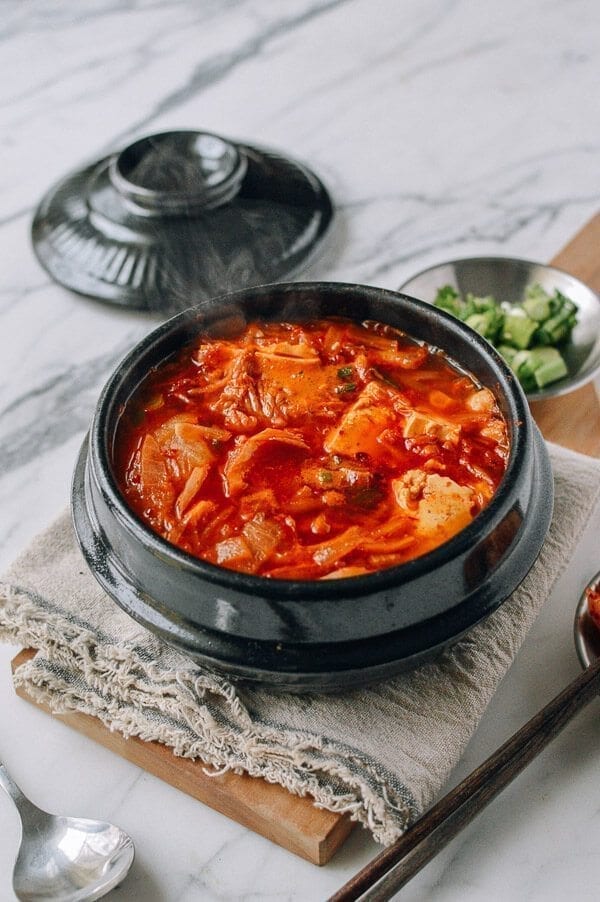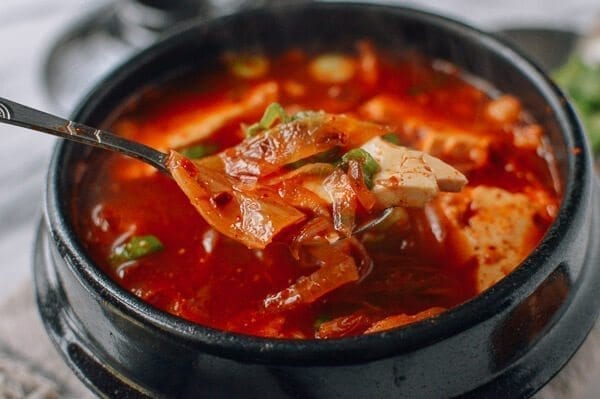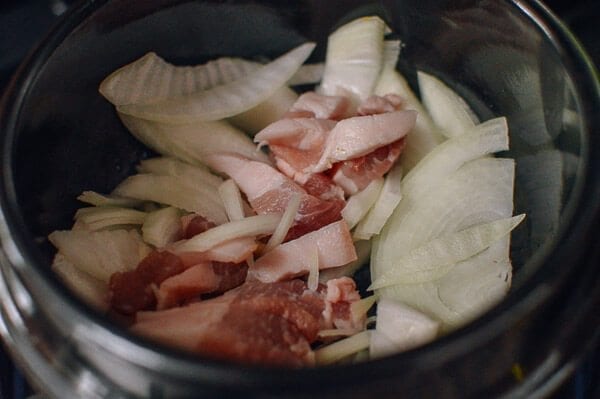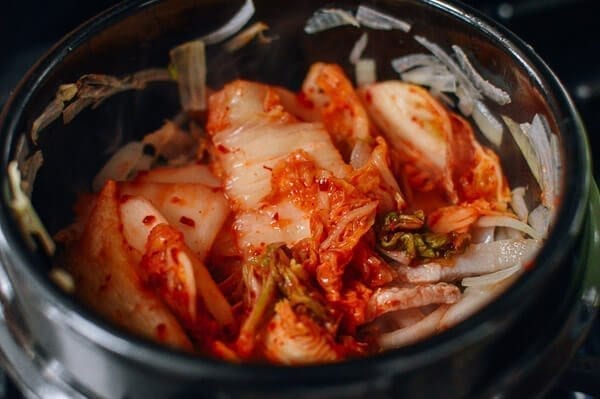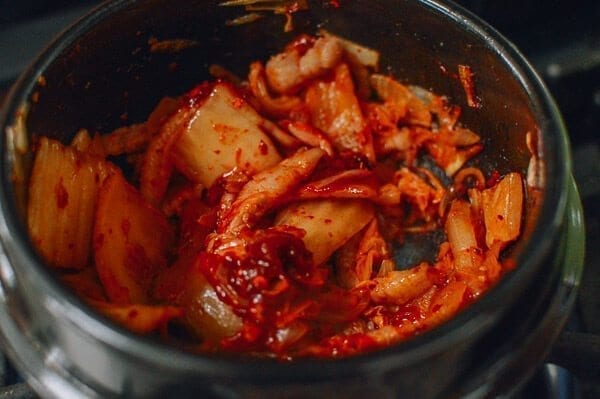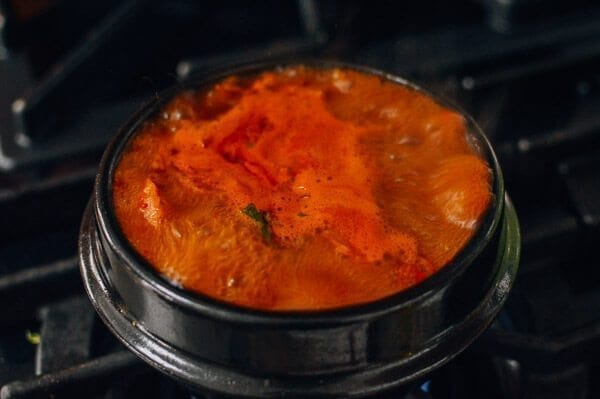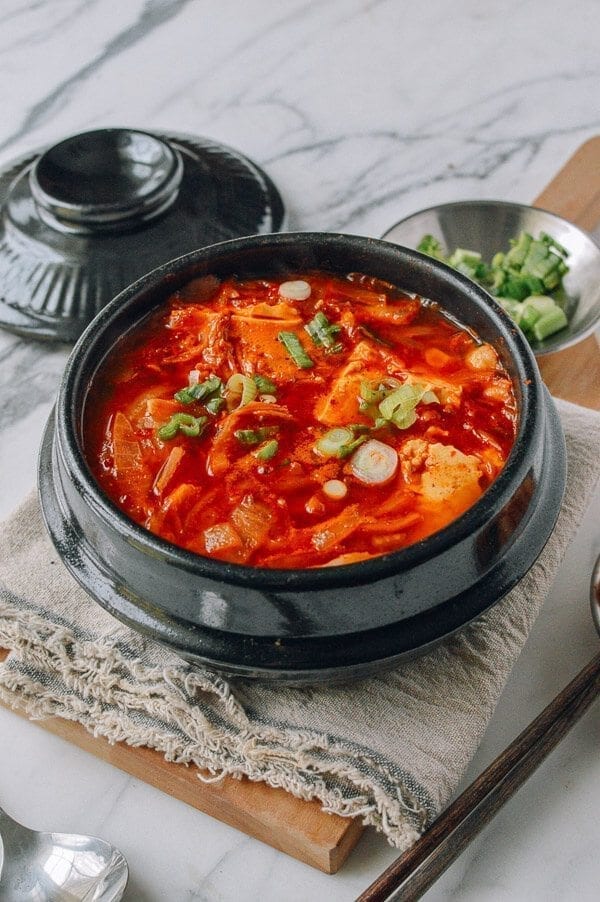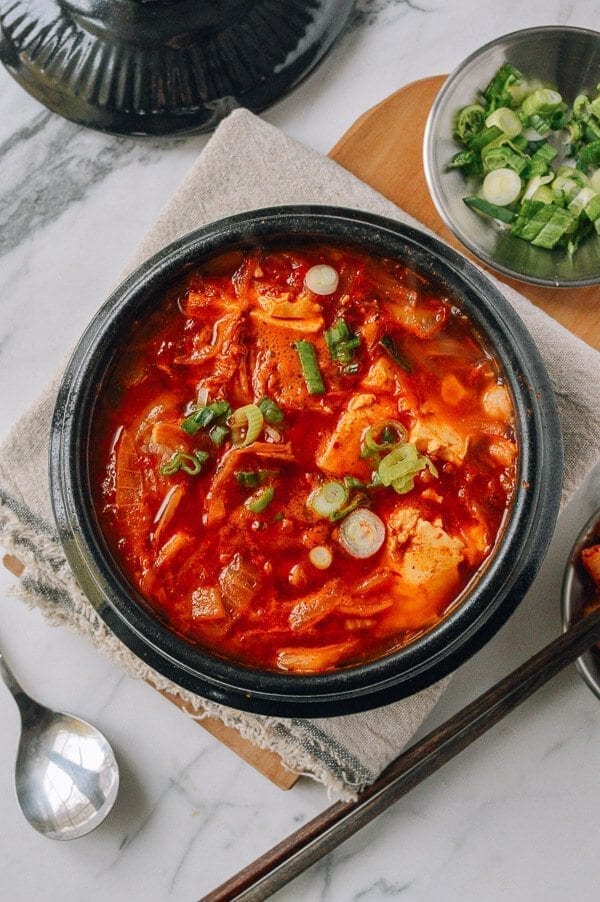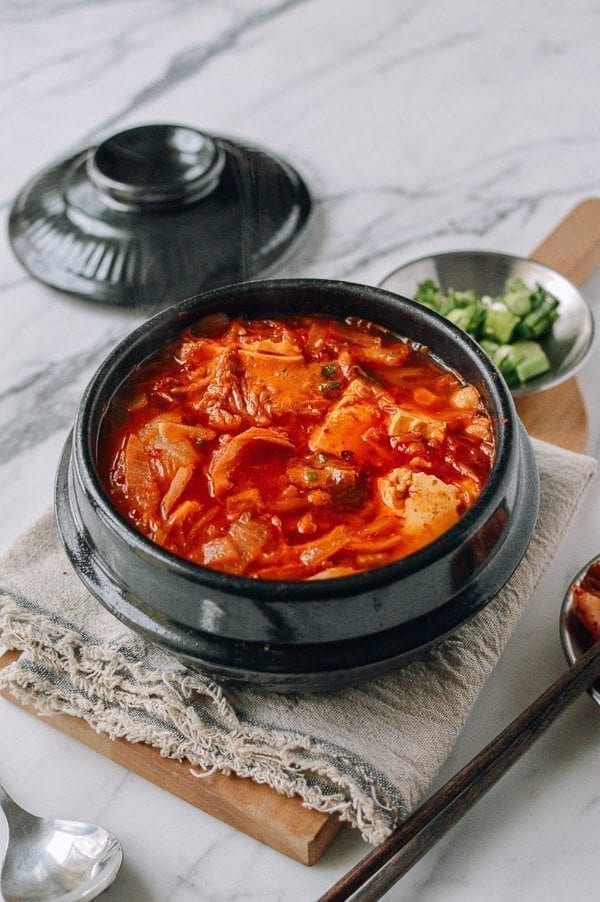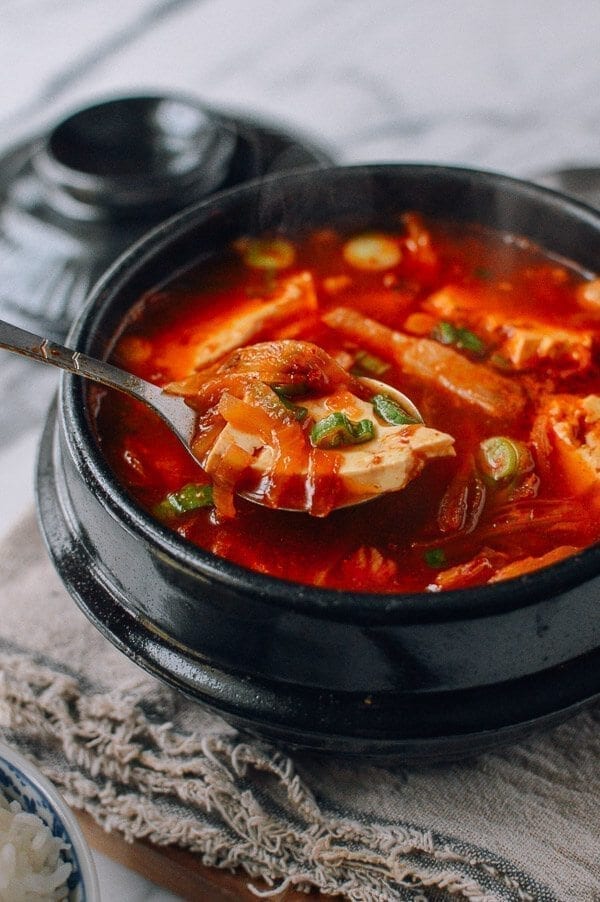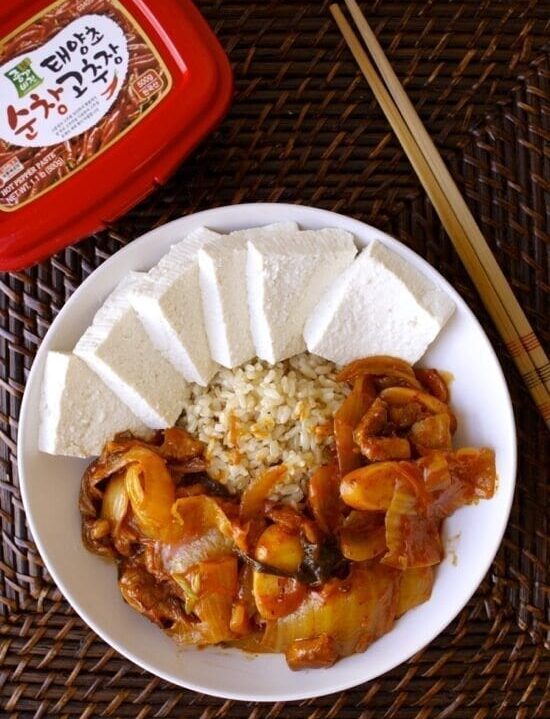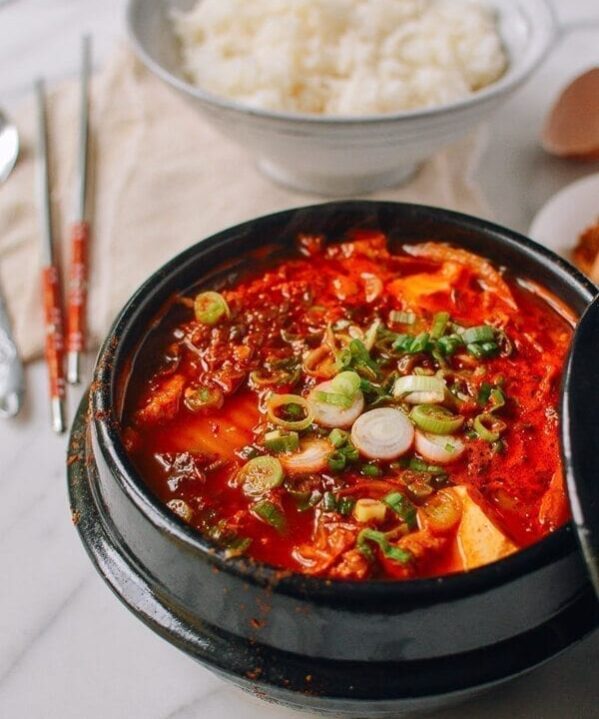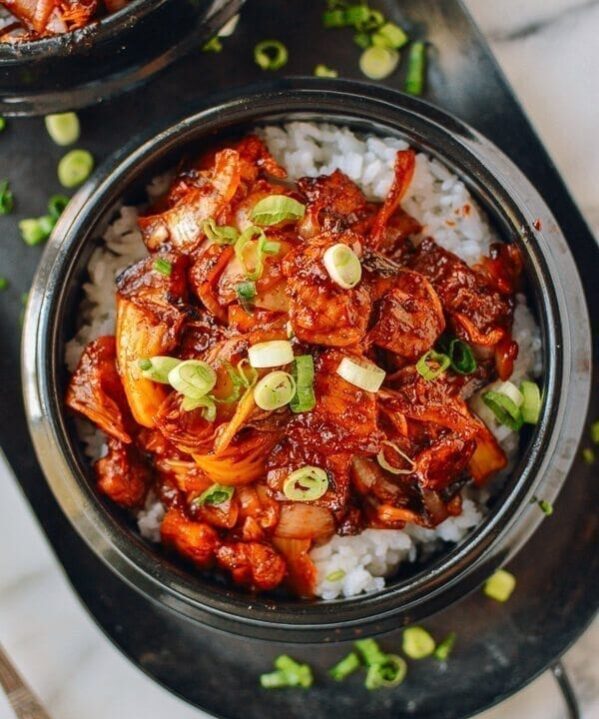Kimchi stew, or kimchi jigae, is one of my favorite things to eat during the winter. When it’s chilly outside, there’s nothing better than a stone pot bubbling with this fiery red stew in front of you.
Adjusting Spiciness To Taste
While it looks incredibly spicy, I usually find this kimchi stew to be relatively mild. Despite their angry red color, Korean chili flakes are somewhat mild when compared to, say the crushed red pepper flakes you sprinkle over your cheese slice at the pizza parlor.
That said, feel free to adjust the recipe according to your spice tolerance. If an innocent buffalo wing sets you running, you might want to take a pass on this one. But if a healthy dash of Tabasco on your scrambled eggs sounds appealing, you can definitely handle the heat in this dish.
Discovering the Ease of Korean Home Cooking
As with any cuisine that’s unfamiliar to a home cook, I was once under the impression that cooking Korean food was hard. I reserved the indulgence for restaurants only, making pilgrimages to Manhattan’s Koreatown for heavy doses of banchan, Dubu Kimchi, and this Kimchi Jigae, my go-to order.
But the Internet changed that! In walks Maangchi, my favorite Korean food blogger, and she’s makin’ it look easy. Much like I hope The Woks of Life does for Chinese cooking (if I’m allowed to say that without sounding braggy). This recipe is based off her Kimchi Stew, with a few of my own tweaks.
It’s super easy to whip up, especially if you use a shortcut—store-bought broth. While many kimchi stew recipes, including Maangchi’s, call for a from-scratch broth made from kelp, dried anchovies, and other ingredients, using a good quality organic chicken, fish, or even beef stock can make kimchi jigae a reality in your kitchen in under an hour. Got it? Let’s begin.
Oh, before we start…one more thing. You’ll notice in the photos here that I’ve made one serving of this Kimchi stew in my nifty single-serve Korean pot. The recipe written below can be cooked in a larger pot, and actually serves 6! But the steps in the photos below are all the same.
Recipe Instructions
In a large pot, heat the oil over medium high heat. Add the onion, garlic, and pork belly, and cook for about 5 minutes, until the pork is lightly browned and the onions start to soften.
Add the kimchi and fry for 2 minutes.
Then add the salt, sugar, Korean chili flakes, gochujang (Korean red pepper paste), and broth. Stir until combined.
Bring to a simmer, cover, and cook for 10 minutes.
Uncover and lay the firm tofu over the top. Replace the cover and simmer for another 10 minutes. Uncover for the last time and stir in the sesame oil.
Garnish with the chopped scallion and serve immediately with steamed rice!
Kimchi Stew (Kimchi Jigae Recipe)
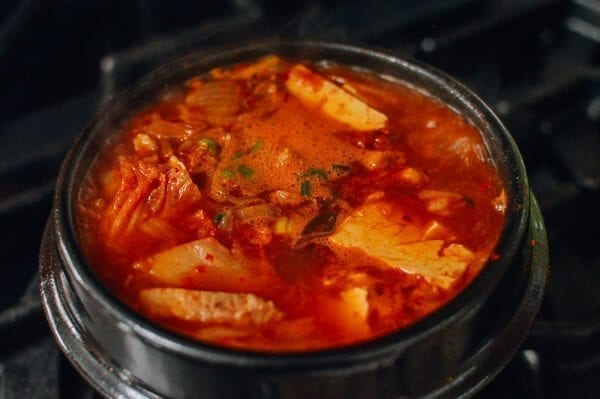
Ingredients
- 1 tablespoon oil
- 1 onion (thinly sliced)
- 3 cloves garlic (sliced)
- 8 ounces pork belly or shoulder (225g, thinly sliced)
- 1 pound kimchi (450g, with juices, chopped)
- 1 teaspoon salt
- 2 teaspoons sugar
- 1 tablespoon Korean chili flakes
- 1 tablespoon gochujang (Korean red pepper paste)
- 3 cups chicken stock (700 ml, can substitute fish or beef stock)
- 8 oz. firm tofu (225g, cut into 1/4-inch thick slices)
- 1 teaspoon sesame oil
- 1 scallion (chopped)
Instructions
- In a large pot, heat the oil over medium high heat. Add the onion, garlic, and pork belly, and cook for about 5 minutes, until the pork is lightly browned and the onions start to soften.
- Add the kimchi and fry for 2 minutes. Then add the salt, sugar, chili flakes, gochujang, and broth. Stir until combined. Bring to a simmer, cover, and cook for 10 minutes.
- Uncover and lay the tofu over the top. Replace the cover and simmer for another 10 minutes. Uncover for the last time and stir in the sesame oil. Garnish with the chopped scallion and serve immediately with steamed rice!
nutrition facts
